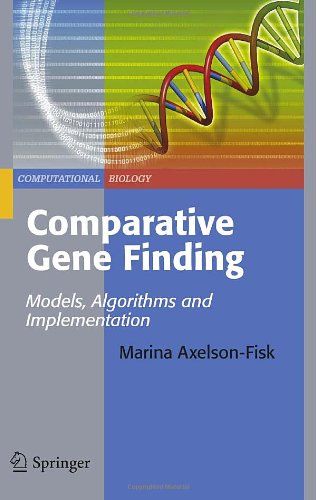

Most ebook files are in PDF format, so you can easily read them using various software such as Foxit Reader or directly on the Google Chrome browser.
Some ebook files are released by publishers in other formats such as .awz, .mobi, .epub, .fb2, etc. You may need to install specific software to read these formats on mobile/PC, such as Calibre.
Please read the tutorial at this link: https://ebookbell.com/faq
We offer FREE conversion to the popular formats you request; however, this may take some time. Therefore, right after payment, please email us, and we will try to provide the service as quickly as possible.
For some exceptional file formats or broken links (if any), please refrain from opening any disputes. Instead, email us first, and we will try to assist within a maximum of 6 hours.
EbookBell Team

4.3
88 reviewsComparative genomics is an emerging field, which is being fed by an explosion in the number of possible biological sequences. This has led to an immense demand for faster, more efficient and more robust computer algorithms to analyze this large amount of data.
This unique text/reference describes the state of the art in computational gene finding, with a particular focus on comparative approaches. Providing both an overview of the various methods that are applied in the field, and a concise guide on how computational gene finders are built, the book covers a broad range of topics from probability theory, statistics, information theory, optimization theory and numerical analysis. The text assumes the reader has some background in bioinformatics, especially in mathematics and mathematical statistics. A basic knowledge of analysis, probability theory and random processes would also aid the reader.
Topics and features:
A useful text for postgraduate students, this book provides valuable insights and examples for researchers wishing to enter the field quickly. In addition to the specific focus on the algorithmic details surrounding computational gene finding, readers obtain an introduction to the fundamentals of computational biology and biological sequence analysis, as well as an overview of the important mathematical and statistical applications in bioinformatics.
Dr. Marina Axelson-Fisk is an Associate Professor at the Department of Mathematical Sciences of Chalmers University of Technology, Gothenburg, Sweden.